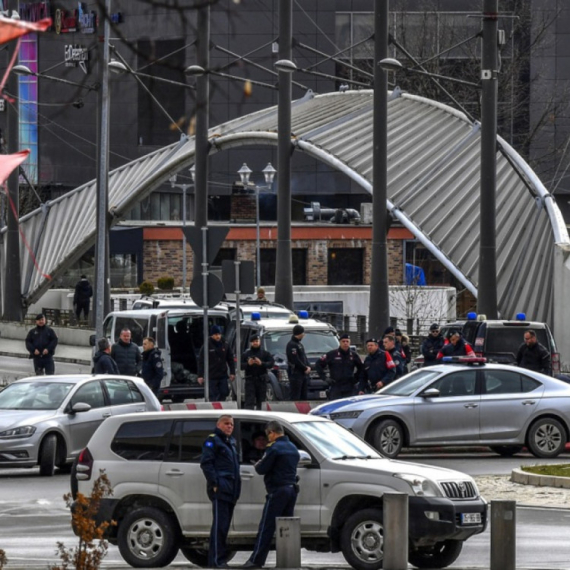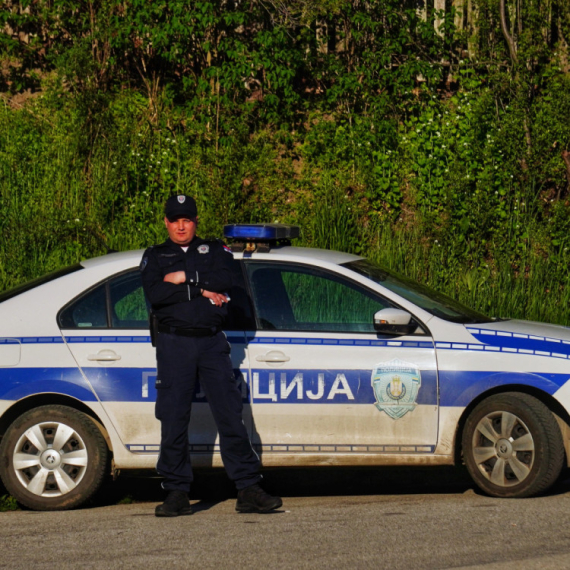"UN to give political interpretation of ruling"
In the wake of ICJ's Kosovo case ruling, Serbian President Boris Tadić has announced a "clear plan of diplomatic activities".
Friday, 23.07.2010.
10:37

In the wake of ICJ's Kosovo case ruling, Serbian President Boris Tadic has announced a "clear plan of diplomatic activities". The top UN court said in its advisory opinion on Thursday that the Kosovo Albanian unilateral declaration of independence, which Serbia rejects as illegal, did not violate international law, "since there is no active provision that limits independence declarations", but would not rule on the right to self-determination or secession. "UN to give political interpretation of ruling" Late on Thursday, Tadic announced that the first in a series of Belgrade's steps now will be sending special envoys to more than 50 states worldwide, who will take Tadic personal message to those countries' leaders. “Serbia continues with the diplomatic initiative so it can prepare as well as it can for the debate in the UN General Assembly,” Prime Minister Mirko Cvetkovic announced. The ICJ's advisory opinion will now be forwarded to the UN General Assembly, which was the body that sent the case to the tribunal in the fall of 2008, at Serbia's request. The Serbian president told reporters in Belgrade that this will be a new chance for international assessment of the "legality of Kosovo's independence". He added that this, yet another difficult decision made regarding Serbia's interests, "did not mean that its diplomatic struggle for Kosovo was over". “The decision of the International Court of Justice that the unilateral declaration of independence of Kosovo does not violate international law is difficult for Serbia, and our public should be openly told that openly. However, it is clear that the court did not declare itself about the right to secession, but has decided to discuss exclusively the technical content of the declaration on independence,” the president pointed out. “The text of the (Kosovo Albanian) declaration, by itself, does not violate international law considering that it doesn't touch on it. Therefore the court avoided declaring itself about the essential question and left it up to the highest organ of the UN, the General Assembly, to discuss that and all political implications,” Tadic said. As this body meets in New York in the fall, Serbia will fight to push the adoption of a resolution that will call for negotiations which will solve the conflict in Serbian-Albanian relations. Until then, both the president and the Foreign Ministry are announcing a clear plan of diplomatic activities. “This will primarily be seen in our intensified diplomatic activity. About 50 special envoys of the president of the republic will take his personal message to many countries which have doubts about the interpretation of the(ICJ) decision, and doubts because they are exposed to pressure to do it (recognize Kosovo) before the UN General Assembly,” says Political Director of the Foreign Ministry Borko Stefanovic. He explained that the last step would be "the debate which will happen in the General Assembly about Serbia's resolution, which will finally put an end to the process and give political interpretation of what the court said”. “The struggle for a compromise solution will be hard and long, but Serbia will not give up,” Tadic explained and called on the citizens not to "respond to provocation". “It’s of crucial importance that peace and stability in the territory of Kosovo are preserved. I call upon the citizens not to be provoked, but I wish to repeat what I have said many times since I became the president, that Serbia will be solving the issue of Kosovo in an exclusively peaceful manner,” he said. Tadic concluded by saying that the only sustainable solution for the future status of Kosovo was that acceptable to all sides, and once again stressed that Serbia has not, and never will change its position that it did not recognize the independence of Kosovo. Tadic in Belgrade on Thursday (Tanjug) Affirmation of friendship Ahead of the reading of the ICJ decision in The Hague yesterday, reports said that U.S. Vice President Joseph Biden telephoned Serbian President Boris Tadic to affirm U.S.-Serbian friendship and support for a democratic and multi-ethnic Kosovo. The United States on Thursday also welcomed the ICJ advisory opinion and urged other countries including Serbia to recognize Kosovo. U.S. Secretary of State Hillary Clinton said the ICJ ruling "decisively supported the U.S. view that Kosovo's break with Serbia was legal, and that it is an independent state whose territory is inviolable", VOA reported. She appealed to "both Kosovo and Serbia to put aside their differences and work together constructively", said reports.
"UN to give political interpretation of ruling"
Late on Thursday, Tadić announced that the first in a series of Belgrade's steps now will be sending special envoys to more than 50 states worldwide, who will take Tadić personal message to those countries' leaders.“Serbia continues with the diplomatic initiative so it can prepare as well as it can for the debate in the UN General Assembly,” Prime Minister Mirko Cvetković announced.
The ICJ's advisory opinion will now be forwarded to the UN General Assembly, which was the body that sent the case to the tribunal in the fall of 2008, at Serbia's request.
The Serbian president told reporters in Belgrade that this will be a new chance for international assessment of the "legality of Kosovo's independence". He added that this, yet another difficult decision made regarding Serbia's interests, "did not mean that its diplomatic struggle for Kosovo was over".
“The decision of the International Court of Justice that the unilateral declaration of independence of Kosovo does not violate international law is difficult for Serbia, and our public should be openly told that openly. However, it is clear that the court did not declare itself about the right to secession, but has decided to discuss exclusively the technical content of the declaration on independence,” the president pointed out.
“The text of the (Kosovo Albanian) declaration, by itself, does not violate international law considering that it doesn't touch on it. Therefore the court avoided declaring itself about the essential question and left it up to the highest organ of the UN, the General Assembly, to discuss that and all political implications,” Tadić said.
As this body meets in New York in the fall, Serbia will fight to push the adoption of a resolution that will call for negotiations which will solve the conflict in Serbian-Albanian relations. Until then, both the president and the Foreign Ministry are announcing a clear plan of diplomatic activities.
“This will primarily be seen in our intensified diplomatic activity. About 50 special envoys of the president of the republic will take his personal message to many countries which have doubts about the interpretation of the(ICJ) decision, and doubts because they are exposed to pressure to do it (recognize Kosovo) before the UN General Assembly,” says Political Director of the Foreign Ministry Borko Stefanović.
He explained that the last step would be "the debate which will happen in the General Assembly about Serbia's resolution, which will finally put an end to the process and give political interpretation of what the court said”.
“The struggle for a compromise solution will be hard and long, but Serbia will not give up,” Tadić explained and called on the citizens not to "respond to provocation".
“It’s of crucial importance that peace and stability in the territory of Kosovo are preserved. I call upon the citizens not to be provoked, but I wish to repeat what I have said many times since I became the president, that Serbia will be solving the issue of Kosovo in an exclusively peaceful manner,” he said.
Tadić concluded by saying that the only sustainable solution for the future status of Kosovo was that acceptable to all sides, and once again stressed that Serbia has not, and never will change its position that it did not recognize the independence of Kosovo.
Affirmation of friendship
Ahead of the reading of the ICJ decision in The Hague yesterday, reports said that U.S. Vice President Joseph Biden telephoned Serbian President Boris Tadić to affirm U.S.-Serbian friendship and support for a democratic and multi-ethnic Kosovo.The United States on Thursday also welcomed the ICJ advisory opinion and urged other countries including Serbia to recognize Kosovo.
U.S. Secretary of State Hillary Clinton said the ICJ ruling "decisively supported the U.S. view that Kosovo's break with Serbia was legal, and that it is an independent state whose territory is inviolable", VOA reported.
She appealed to "both Kosovo and Serbia to put aside their differences and work together constructively", said reports.











































Komentari 17
Pogledaj komentare